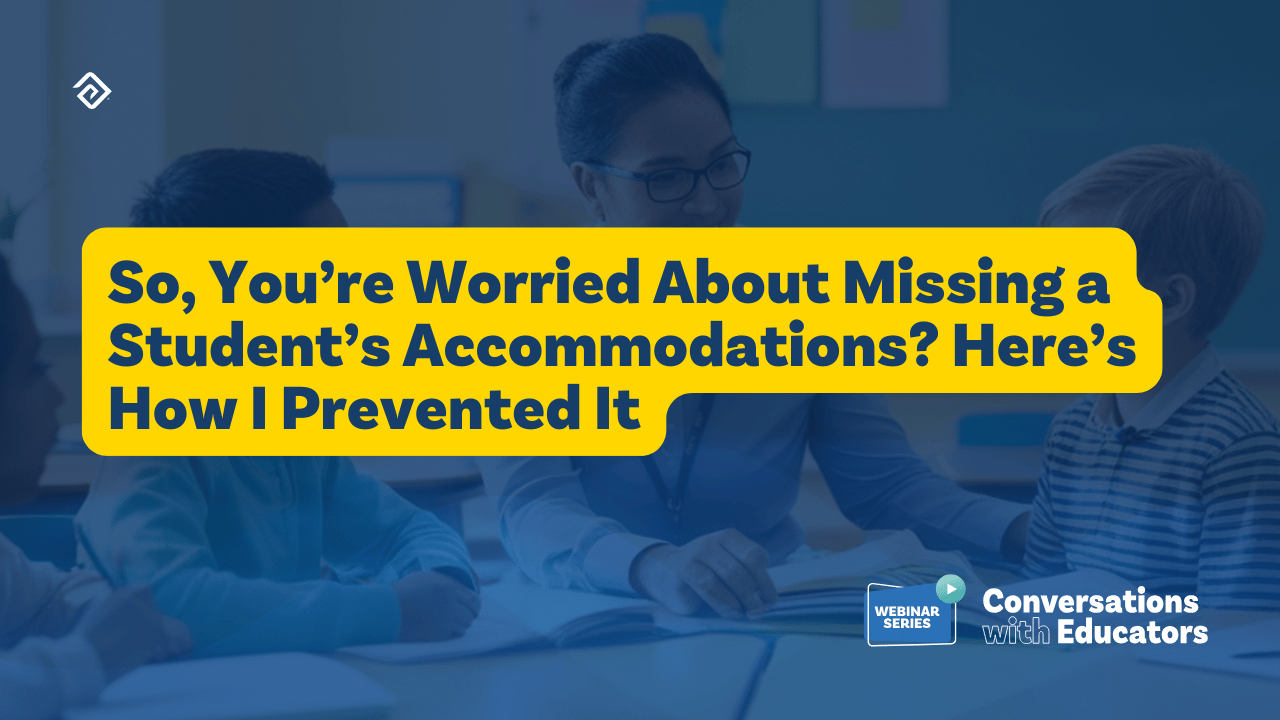Two EdTech Innovators Combine to Address Concerns and Solutions About Student Assessment
Illuminate Education and Education Advanced have joined forces in a collaborative partnership to provide educators with support and practical solutions for assessment concerns. The onset of COVID-19 in the spring of 2020 caused significant disruptions in the education world and changed how public schools function at their core. Educators across the country suddenly found themselves making substantial shifts in operations to maintain instructional continuity, despite lacking the advancements necessary to support remote and hybrid instructional delivery models. As fears for student safety shut schools down and prevented in-person attendance, another historical effect of COVID-19 emerged – the suspension of state assessments across the nation.
Although some states have fully resumed in-person instruction, others like California continue to struggle with reopening schools. The nationwide variability in instructional models and diverse state responses to the disruptions caused by COVID-19 complicate approaches to student assessment. In a letter dated February 22, 2021, Ian Rosenblum, the delegated authority to perform the Assistant Secretary’s functions for the Office of Elementary and Secondary Education (OESE) in the Biden administration, notified Chief State School Officers that the administration of summative assessments in spring 2021 will take place. The letter outlined flexibility for accountability and assessment administration but stressed the importance of administration and testing transparency and public reporting. Although the U.S. Department of Education (USDOE) has granted waivers to a few states like Colorado and the District of Columbia, others like Michigan did not receive approval and now face testing concerns. California has taken a hybrid approach to test that is unique but somewhat aligned to the hybrid nature of education this year. Finally, Texas, Florida, Tennessee, and other states continue the plan to test all students.
Equity and Accessibility Concerns
A general lack of infrastructure to support online instruction and assessment led to nationwide concerns regarding secure and equitable testing in a remote environment. Children across the country come from a myriad of backgrounds, not all of which accommodate a stable testing environment. Guaranteeing a quiet, well-lit, comfortable space for every student in a remote setting is impossible.
Students from low socio-economic backgrounds experience the most significant impact from this equity gap. Students living in poverty often lack adequate access to the internet, necessary equipment, or even a suitable space in which to test alone. According to the U.S. Department of Education, National Center for Education Statistics, approximately 62% of the over 50M students in grades K-12 meet the low socio-economic background criteria.
Additionally, ensuring all students have access to essential or required supports and accommodations is a crucial challenge. Issues faced in administering assessments in a remote environment include security considerations for test items, certification of unassisted student testing, appropriate administration of accommodations, and confirmation of adequate internet. As a result of these concerns, test data from remote testing environments could potentially be invalid and non-comparable to those of previous years.
The integration of SchoolCity, an assessment platform provided by Illuminate Education, with TestHound, a test enablement tool from Education Advanced, allows districts to address student accommodations concerns directly with more efficiency and accuracy. TestHound integrates with the student information system and Special Education and English Language Learner programs, enabling districts to capture and manage student accommodation data. With SchoolCity, districts can create online assessments with personalized student accommodations to ensure students automatically receive the proper online supports on every assessment.
Safety Concerns
While shifting to in-person testing can help provide students with access to a stable, equitable testing environment, there are many logistical considerations for in-person testing. Health and safety concerns would fast outpace building and staff capacity in comparison to previous years. Social distancing requirements would limit the number of students per room.
Jennifer Samuel, Chief of Assessment & Accountability in Everman Independent School District near Fort Worth, TX, said she and her team have been discussing safety concerns since the beginning of the school year. “My campus testing coordinators were asked to create at least three campus testing plans – one following the traditional testing format, and two others addressing these factors: COVID safety, separation of in-person and virtual learners, and a cap of 12 students in a testing room,” she shared. “Regardless of our elaborate plans, the biggest consideration will be if anyone becomes ill on our watch.”
"My campus testing coordinators were asked to create at least three campus testing plans – one following the traditional testing format, and two others addressing these factors: COVID safety, separation of in-person and virtual learners, and a cap of 12 students in a testing room."
Given these safety factors, testing sessions would likely occur across unconventional windows of time, with multiple testing sessions in a single day. For some schools, state testing might even spill over into evening hours or weekends. Testing processes would be unfamiliar for the vast number of students required to test, further affecting those assessments’ equity.
Eileen Goodson, Director of Student Services and Testing in Sumter District Schools in Sumter County, FL, hopes the state will take all these factors into consideration when making decisions about accountability. “There can be no expectation of equity with all the different instructional models and time excluded due to COVID illness and school closures,” she said. “In Sumter, we will evaluate each case based on whether the student was at a disadvantage with instruction or testing, and make decisions regarding promotion, graduation, and class credits accordingly.”
"There can be no expectation of equity with all the different instructional models and time excluded due to COVID illness and school closures."
TestHound’s Multi-Session Scheduling feature provides an efficient method of coordinating student testing across large testing windows and allows coordinators to address spacing and timing concerns to ensure a safe testing environment. Multi-Session Scheduling provides the ability to designate the use of specific rooms and assign test administrators to multiple rooms and sessions throughout the testing window. Additionally, Multi-Session Scheduling allows for the generation of combined reports for students clustered by various test subjects and grades.
State Responses
In the hopes of pushing the inevitability of state testing back yet another year, several states, including California, Georgia, Illinois, Michigan, New Jersey, and New York, have already requested waivers for 2020-21 testing, accountability, or both. State concerns include the testing environment, test equity, and challenges related to disrupted and varied instruction modes across every state.
While some states are not opposed to returning to testing this year, they want to remove the pressure of accountability under the current circumstances. The letter outlined a waiver process for accountability and school identification to address these concerns for states. In the letter, Rosenblum stated that “It remains vitally important that parents, educators and the public have access to data on student learning and success.” He also said, “It is urgent to understand the impact of COVID-19 on learning.” Despite concerns regarding issues in the administration of assessments, many educators and parents agree with these imperatives. Officials in Florida, Indiana, Iowa, Tennessee, and Texas have indicated plans to test regardless of federal requirements to have some insight into the impact of COVID-19.
“Addressing student academic needs is our main focus, and prevention of further academic gaps is a daily discussion in our district,” said Samuel. “Across the state, all educators are working hard to ensure students are not left behind.”
"Addressing student academic needs is our main focus, and prevention of further academic gaps is a daily discussion in our district."
Preparing for Success
The impact on instruction and assessment felt nationwide resulted in significant disruption to teaching and learning. All levels of government are working furiously to consider options for collecting data that can help guide instruction and resources while prioritizing health and safety. Equity and accessibility remain of the utmost importance and require a close review of available test results to ensure validity and comparability. Rosenblum “emphasizes the importance of flexibility in the administration of statewide assessments,” offering several options for states to consider.
Dr. Elda Garcia, Executive Director of the National Association of Testing Professionals, says testing has always been a significant discussion topic and a huge undertaking. “This pandemic has made our usual concerns about validity, security, equity, and tracking even more complicated,” said Garcia. “Testing coordinators need tools and resources that simplify test preparation and will be applicable regardless of what shakes out.”
"Testing coordinators need tools and resources that simplify test preparation and will be applicable regardless of what shakes out."
Districts from coast to coast have discovered that the ability to respond to rapidly changing circumstances is an absolute necessity. Challenges presented by COVID-19 have illuminated the need for automated processes to eliminate redundancy, inefficiency, and inaccuracies. Additionally, building strong partnerships to ensure students receive the necessary support, regardless of instructional or assessment delivery model, is crucial.
In these uncommon and demanding times, education leaders must remain student-focused to safeguard equity and accessibility for all students. The integration partnership between Illuminate Education and Education Advanced allows districts to align with state requirements, capture and manage student accommodation data through seamless integration with district SIS and improve the student testing experience through consistency and efficiency. SchoolCity and TestHound empower districts to streamline the assessment process for teachers, create customized standards-based assessments, and ensure every student receives the support they need to be successful.
About Illuminate Education
Illuminate Education equips educators to take a data-driven approach in serving the whole child. Our solution combines comprehensive assessment, MTSS management and collaboration, and real-time dashboard tools and puts them in the hands of educators. As a result, educators can monitor learning and growth, identify academic and social-emotional behavioral needs, and align targeted supports to accelerate learning for each student. To learn more, visit https://www.illuminateed.com/
About Education Advanced
Education Advanced is a privately held K-12 EdTech SaaS company providing operations tools to enable educators to be more efficient, allowing them to dedicate more of their valuable time and resources to exceeding student needs. EAI’s product offering includes Cardonex, TestHound, and BYOC. These award-winning and patented technology solutions significantly advance the efficacy of master scheduling, staff planning, curriculum development and delivery, and assessment coordination for K-12 school districts across the country. To learn more, visit https://educationadvanced.com/

Resources
- https://osse.dc.gov/page/osse-statewide-assessment-and-accountability-waiver-covid-19
- https://edsource.org/2021/california-school-districts-get-ok-to-choose-local-assessments-over-statewide-tests-this-spring/652435
- https://www.clickondetroit.com/news/local/2021/04/06/used-denies-michigans-request-to-waive-federal-requirement-to-test-students-during-pandemic/
- https://www.statesman.com/story/news/education/2021/02/03/texas-staar-test-required-person-year-heres-what-you-need-know/4178384001/
- https://www.statesman.com/story/news/education/2021/02/03/texas-staar-test-required-person-year-heres-what-you-need-know/4178384001/
- https://www.statesman.com/story/news/education/2021/02/03/texas-staar-test-required-person-year-heres-what-you-need-know/4178384001/
- https://www.denverpost.com/2021/03/26/cmas-standardized-testing-colorado-2021-covid/


More Great Content
We know you'll love





